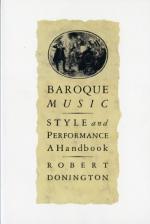|
This section contains 6,411 words (approx. 22 pages at 300 words per page) |

|
Pierre Bayle.
Not every seventeenth-century intellectual engaged in scientific research embraced rationalism. Some rejected it as presuming to use mathematics to do something mathematics could not do, that is, validate the existence of God. Of these, the most important was Blaise Pascal (1623–1662), the French genius whose Jansenist convictions prompted him to affirm that God is only knowable through the insights he offers as gifts of grace to individual humans. Those trained in the traditional concerns of humanism, with its emphasis on creating a philosophy that might inspire virtue, similarly failed to concede the high road to the rationalists. Many thinkers who could be placed in this category adopted a skeptical posture that questioned the value of any knowledge of human affairs derived from scientific methods of reasoning. Of these, the most influential was Pierre Bayle (1647–1706). Bayle was born and raised as a French Huguenot, those that followed the...
|
This section contains 6,411 words (approx. 22 pages at 300 words per page) |

|




